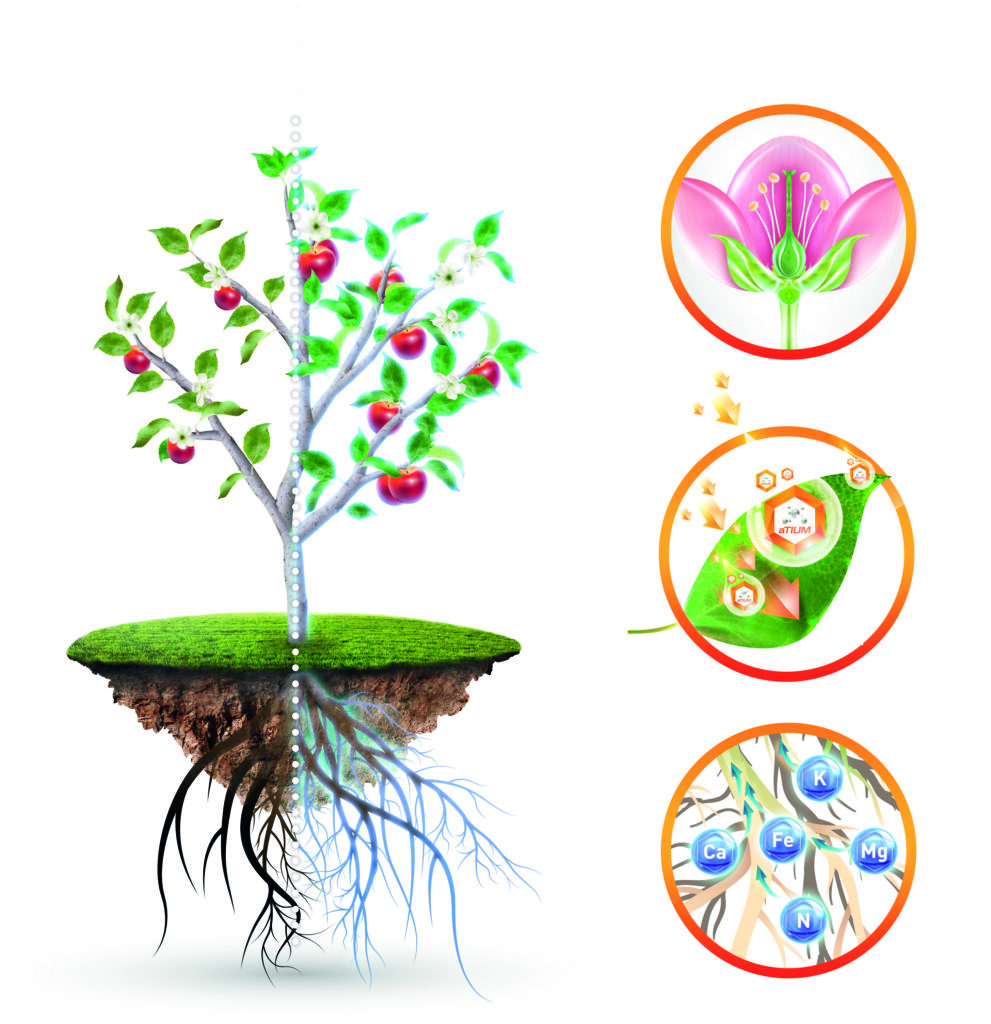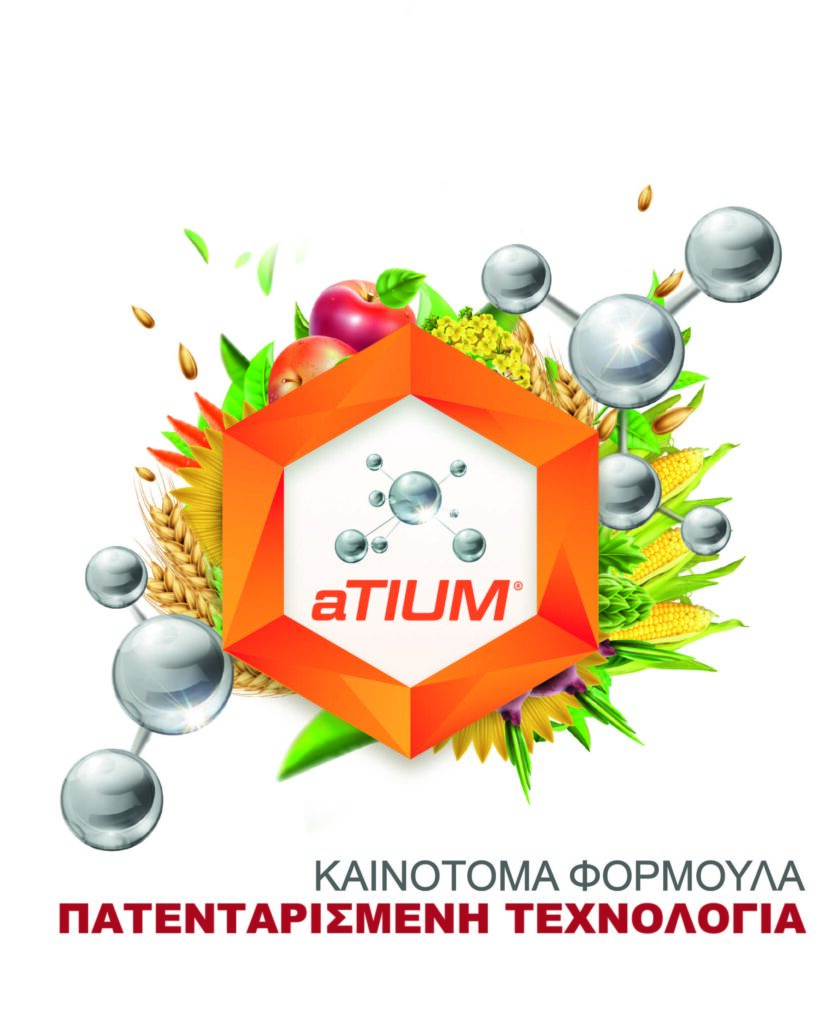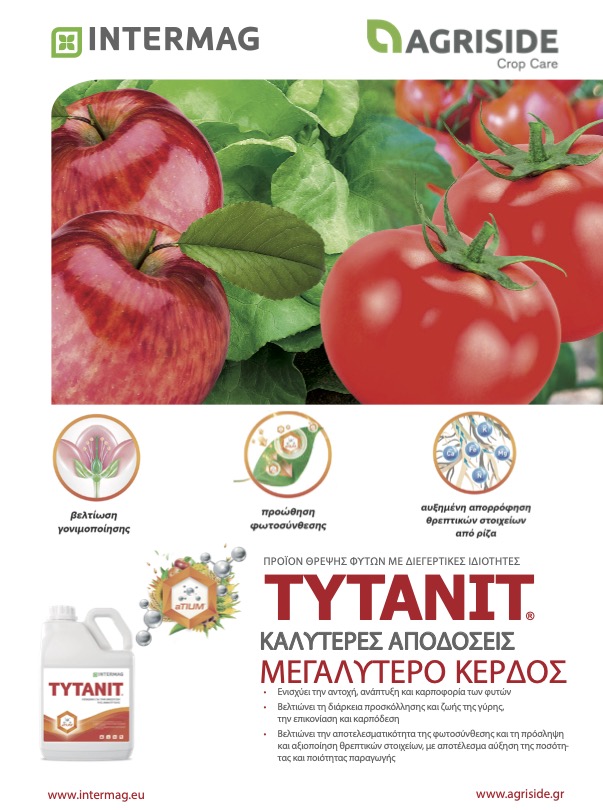With innovative aTium technology
Dr. Stylianos Katerinis,
Director of Technical Department of AGRISIDE CropCare
Titanium (Ti), a biocompatible element for humans, also used in the food industry, is found in small concentrations in the body of humans, plants, and also in the soil, where it has low mobility and limited availability for plant roots. Many experimental studies on various types of cultivated plants have proven the biostimulatory role of its application. TYTANIT of the multinational INTERMAG represented in Greece by AGRISIDE CropCare, thanks to the innovative aTium technology, effectively supplies the plants with titanium, magnesium and sulfur and achieves improved fruiting, nutrition, growth, resistance and performance with quality.

TYTANIT is a formulation with bioavailable Titanium (Ti) in a special, patented organic molecule: aTium. It has a composition of Ti 8.5 g/l + MgO 62 g/l + SO3 124 g/l, with a pH of 4, it is completely water-soluble and immediately absorbable, with excellent compatibility with all agrochemicals. Administered foliarly or from the root, it achieves better fertilization of flowers and fruit set, nutrition of plants and fruits, stimulation of plant growth, improvement of yield and production quality of crops. In experiments in 2020 in Romania, in winter wheat, 2 foliar applications of TYTANIT at a dose of 0.2 l/10 hectares resulted in a 15.6 % increase in production compared to the pruned control, as well as increased protein content by 22.9 %. Also in sunflower, 2 foliar applications at the same dose resulted in a 13.7% increase in production, as well as an increased oil content by 2.2%. In Slovenia, in vines, 2 foliar pre-flowering applications at the same dose increased production by 10.2% in 2016 and 12.4% in 2017. In Turkey in 2018, 2 pre-flowering foliar applications at a dose of 0.5 L/10 hectares increased the weight yield by 29%. In Poland on apple trees in 2013 & 2014, 2 foliar applications before and during flowering at the same dose, increased fruit set by 15% and average fruit weight by 25% with an average number of fertile seeds of 9 per fruit.

More detailed :
- It improves the fertilization of the flowers by achieving abundant fruit set and more fertile seeds in the fruit, which therefore develops better. Thanks to the effect of Ti on increasing the mobility of calcium (Ca), this rises to the stigma of the flower so there we have much more sticky substance and more pollen grains adhere for a longer time. Thus we have the development of many pollen tubes, so better fruit set and fertilization of more carpels, resulting in more fertile seeds and therefore better “care” of the fruit by the plant.
- It stimulates the activity of several enzymes (catalase, peroxidase, lipoxygenase, phosphofructokinase, nitrate reductase, etc.) and therefore the better metabolism of plants, including the metabolism of Nitrates.
- It improves the size and functionality of leaves and vessels and therefore the absorption by the root of nutrients: N, K, P, Ca, Mg, Fe, Zn & Mn as well as their mobility inside the plants and especially Ca, K.
- It promotes chlorophyll biosynthesis and photosynthesis basically thanks to the interaction of Ti with iron (Fe), so the green color of the leaves becomes more intense. Specifically, Ti intervenes in the redox chemical process by acting as a catalyst and intensifies the transfer of electrons from Photosystem I to Photosystem II. Magnesium (Mg) also participates in the chlorophyll molecule, so it is important for its synthesis as well as for metabolism, while sulfur (S) for the synthesis of amino acids, vitamins and the activation of enzymes.
- It improves fruit nutrition, weight, size and quality, as well as their consistency, achieving a combination of good photosynthesis, good number of fertile seeds and good absorption and mobility of nutrients.
- Improves the fruit’s antioxidant vitamin C content.
- Improves the content of pigments (anthocyanin, β-croten, xanthophyll, etc.) and therefore the coloring of the fruits, as well as the brightness of their color
- Increases plant biomass, stress resistance and plant productivity, thanks to the combination of stimulating chlorophyll biosynthesis, enzyme action, increasing photosynthesis and nutrient absorption.





